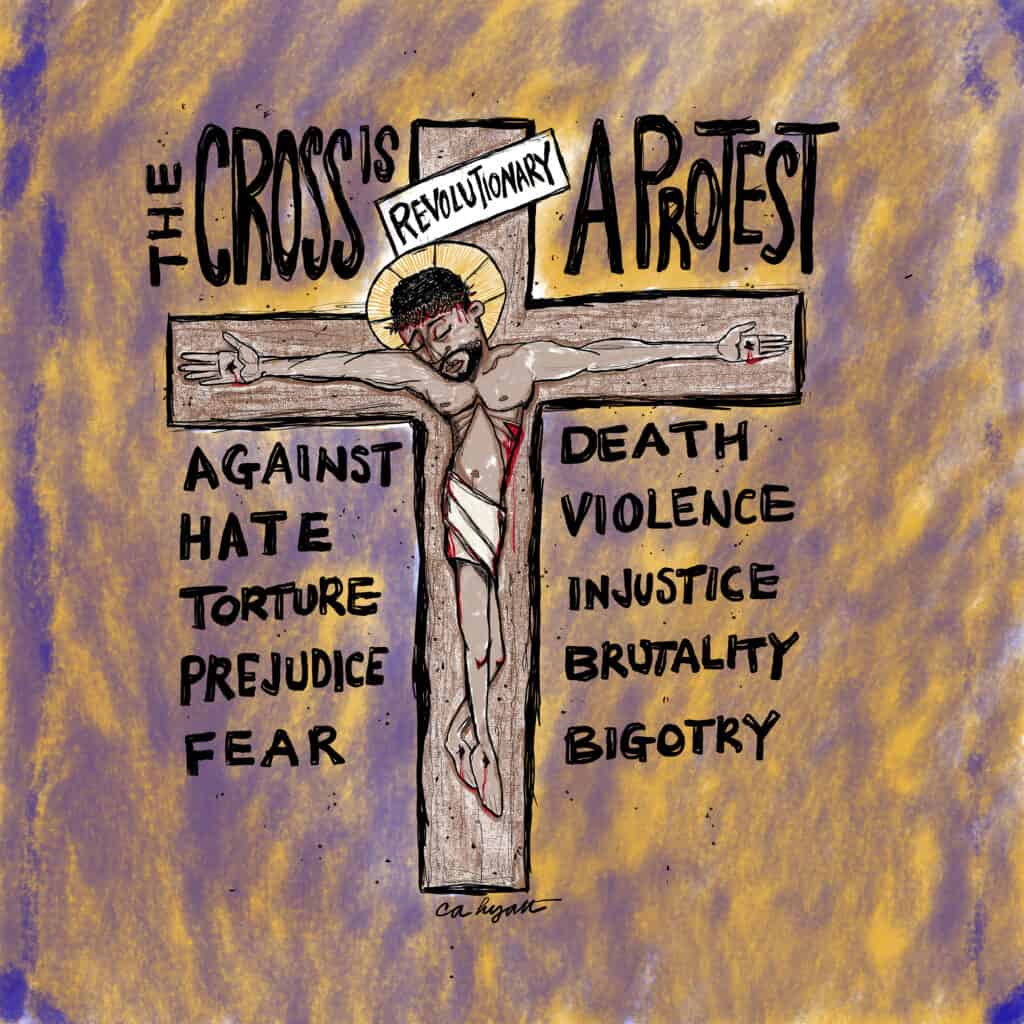Author Chad Hyatt

We sure do like to blame other people. It shows up in our personal relationships and makes it’s way into our politics. It helps us to hold on to destructive addictions long past the time we should’ve let them go. It leads to wars and genocide—and every other hateful, vengeful act by which we defend ourselves through shifting the blame to someone else.
We scapegoat to explain the evil we sense in the world around us by laying it upon the shoulders of others—even whole groups of people, absolving ourselves of any responsibility in the process. We can end up heroes as long as someone else plays the villain—and all just by pointing the finger away from ourselves. But if we are to be saved, we must stop finger-pointing and take a long, hard look at who we are. That is precisely what the cross invites us to do. As we look upon the broken body of Jesus hanging on the cross, we realize God will always be on the side of those who have been victimized by violence and oppression. God saves us by standing with us in our suffering, in our forsakenness, in our wounds, in our death. God not only hears our cries of anguish but cries out in dereliction with us. Everywhere there is a cross, God’s solidarity with those who suffer has made it a sign of protest against violence, torture, and death. As we continue to behold the lonely figure upon the cross, we begin to realize he doesn’t belong there. And neither does anyone else. The cross is not only a protest against injustice, it breaks open the mechanism by which so much injustice has covered the face of the earth: our willingness to make scapegoats out of other human beings in a vain attempt to save ourselves. Looking at the cross, we are called to own up to our part in the injustices of our world, in the violence that robs others of life, in the ways we bow before the idols of death in hope of comfort and security. Yes, there is misery in beholding such mercy. But God’s love will have the last word. God chose the cross we had made for others and made it God’s own—and destroyed the power of death by it. God’s love saves us; it doesn’t destroy us. The cross isn’t about punishment but delivering us from the broken ways we harm one another and ourselves. It isn’t about guilt; it’s about being honest with ourselves and about our world. Let us look again upon the cross, and let us be saved.
Prayer God of saving mercy, by your cross you have set us free.
